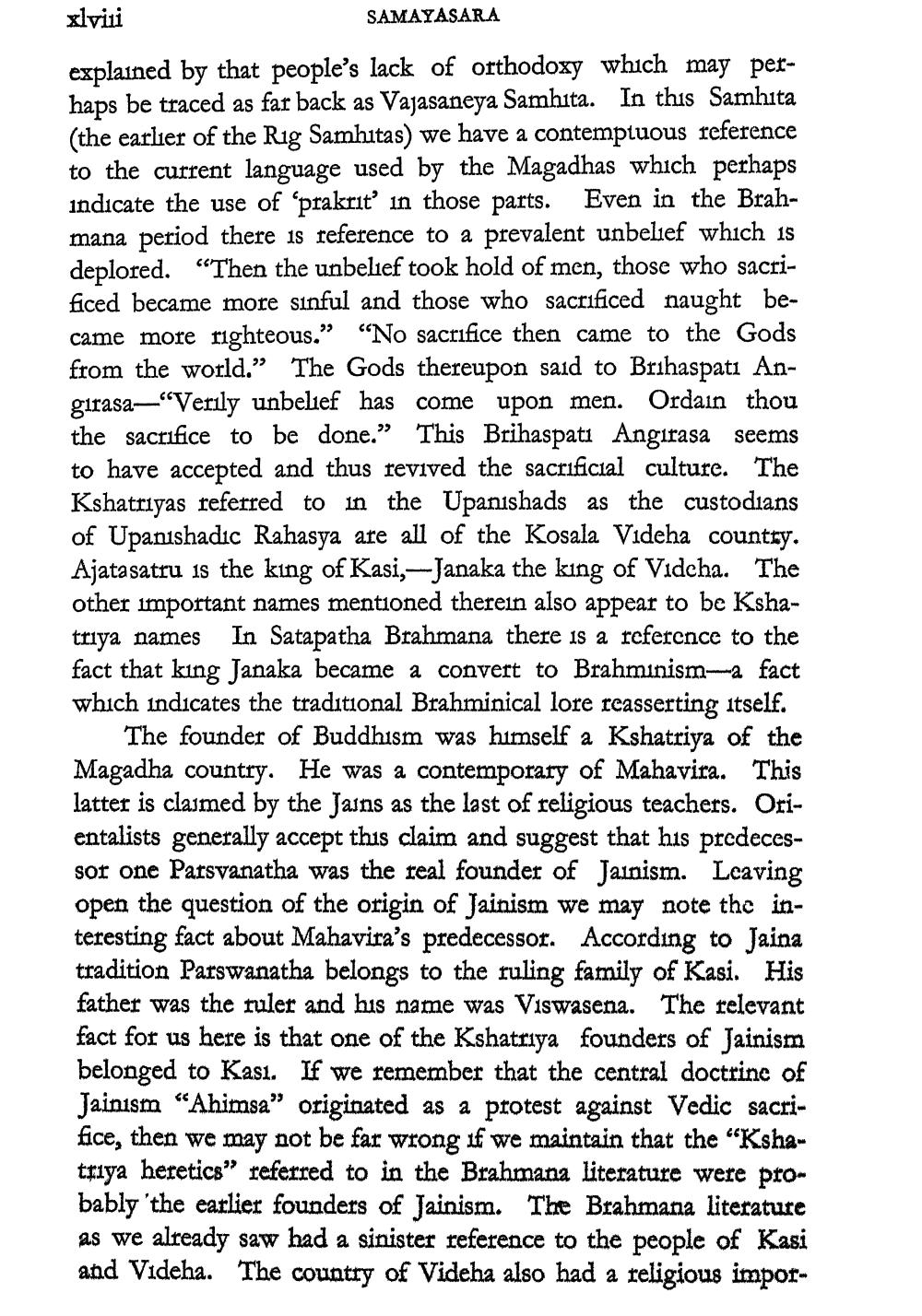________________
xlviii
SAMAYASARA explained by that people's lack of orthodoxy which may perhaps be traced as far back as Vajasaneya Samhita. In this Samhita (the earlier of the Rig Samhitas) we have a contemptuous reference to the current language used by the Magadhas which perhaps indicate the use of 'prakrit' in those parts. Even in the Brahmana period there is reference to a prevalent unbelief which is deplored. “Then the unbelief took hold of men, those who sacrificed became more sinful and those who sacrificed naught became more righteous.” “No sacrifice then came to the Gods from the world.” The Gods thereupon said to Brihaspati Angirasa—"Verily unbelief has come upon men. Ordain thou the sacrifice to be done.” This Brihaspati Angirasa seems to have accepted and thus revived the sacrificial culture. The Kshatriyas referred to in the Upanishads as the custodians of Upanishadic Rahasya are all of the Kosala Videha country. Ajatasatru is the king of Kasi,--Janaka the king of Vidcha. The other important names mentioned therein also appear to be Kshatriya names In Satapatha Brahmana there is a reference to the fact that king Janaka became a convert to Brahminism-a fact which indicates the traditional Brahminical lore rcasserting itself.
The founder of Buddhism was himself a Kshatriya of the Magadha country. He was a contemporary of Mahavira. This latter is claimed by the Jains as the last of religious teachers. Orientalists generally accept this claim and suggest that his predecessor one Parsvanatha was the real founder of Jainism. Leaving open the question of the origin of Jainism we may note the interesting fact about Mahavira's predecessor. According to Jaina tradition Parswanatha belongs to the ruling family of Kasi. His father was the ruler and his name was Viswasena. The relevant fact for us here is that one of the Kshatriya founders of Jainism belonged to Kası. If we remember that the central doctrine of Jainism "Ahimsa” originated as a protest against Vedic sacrifice, then we may not be far wrong if we maintain that the "Kshatriya heretics" referred to in the Brahmana literature were probably 'the earlier founders of Jainism. The Brahmana literature as we already saw had a sinister reference to the people of Kasi and Videha. The country of Videha also had a religious impor




